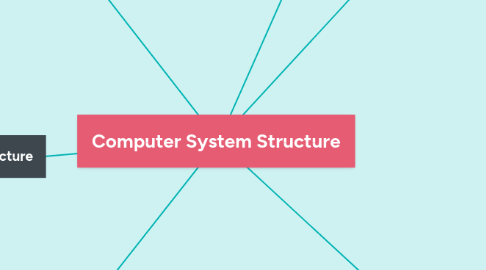Computer System Structure
por Tan Leng


1. Computer-System Operation
1.1. Each device controller has a local buffer
1.2. The CPU and device controllers can execute concurrently
1.3. Each device controller is in charge of a specific type of device
1.4. CPU moves data from/to main memory to/from local buffers
1.5. I/O is from the device to local buffer of controller
1.6. Device controller informs CPU that it has finished its operation by causing an interrupt
2. I/O Structure
2.1. Synchronous I/O Structure
2.2. Asynchronous I/O Structure
2.3. Two I/O Methods
3. Storage Hierarchy
3.1. Speed
3.2. Cost
3.3. Volatility
3.4. Caching
3.5. Storage Device Hierarchy
4. Interrupt Handling
4.1. The operating system preserves the state of the CPU by storing registers and the program counter.
4.2. Determines which type of interrupt has occurred, either by:
4.2.1. -polling, or
4.2.2. -vectored interrupt system
4.3. Separate segments of code determine what action should be taken for each type of interrupt.
5. Storage Structure
5.1. Main memory
5.2. Secondary storage
5.3. Magnetic disks
6. Hardware Protection
6.1. Dual-Mode Operation
6.2. I/O Protection
6.3. Hardware Address Protection
6.4. Memory Protection
6.4.1. Base register
6.4.2. Limit register
6.5. CPU Protection
6.5.1. Timer

